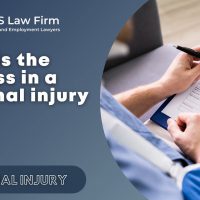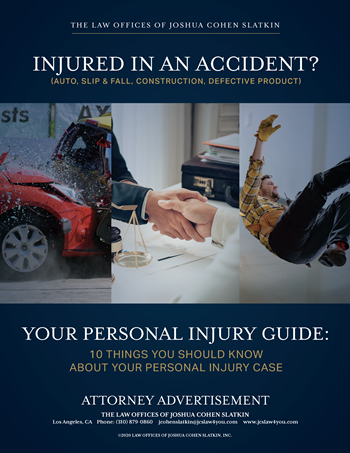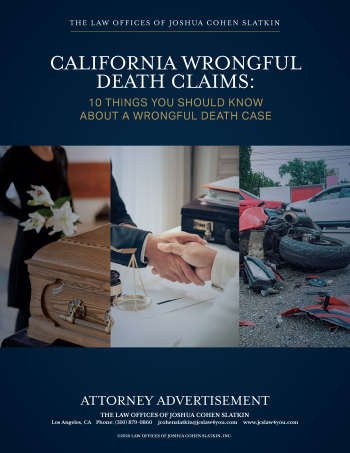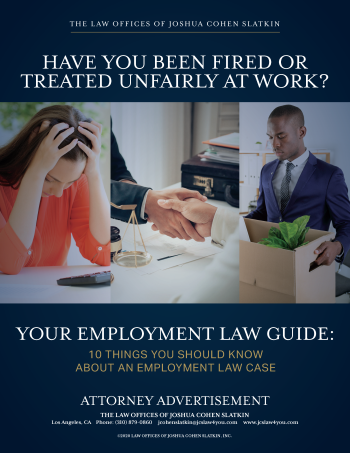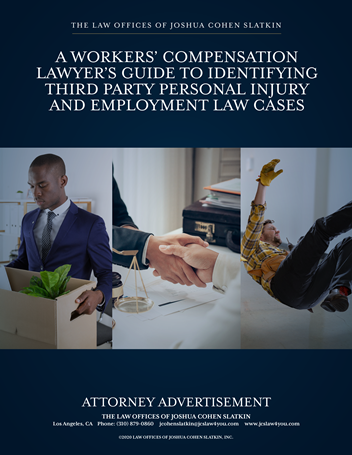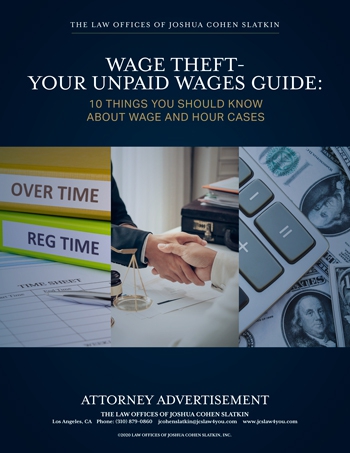A person who brings a lawsuit is entitled to money for their emotional injuries—the pain, suffering, and anxiety that comes from being involved in an accident or wrongful termination. Juries have consistently shown they are willing to grant monetary damages for claims for emotional injuries.
Litigants in California are protected by laws the state has in place respecting privacy, but these laws are balanced against a defendant’s (the party who you are suing) right to obtain past psychological history through a process called discovery.
When Emotional Injuries Are a Vital Part of Your Case
Often, the most significant injuries aren’t physical, but emotional. This is particularly the case in wrongful death lawsuits where the heirs of the decedent have lost a loved one through another’s carelessness and are bringing a claim for the emotional injuries that come from such a tragic event. Wrongful termination cases also rely heavily on emotional injury claims.
Fortunately, plaintiffs with emotional injuries can protect their right to privacy and limit what they have to disclose based on the type of emotional injuries they are claiming in the lawsuit.
Discovery
Discovery is the procedure whereby adversaries in litigation exchange information to fully develop the factual and legal issues of a case before proceeding to trial. Both sides are expected to cooperate with their opponent’s requests for information or documents pertaining to the case. The scope of discoverable information is generally very broad and filing a lawsuit could allow your opponent access to your otherwise private information.
In emotional injury cases, defense attorneys commonly request information from a plaintiff’s meetings with their therapist or ask questions about the plaintiff’s past mental health history. This is done because the attorneys are trying to find a way to pin your emotional distress to some prior, pre-existing emotional or mental injury.
Fortunately, there are laws in place to protect plaintiffs from having to discuss past emotional injury or trauma. Lawyers on the opposing side also like to ask questions to see if there was another traumatic event (i.e. a death in the family, marital issues, etc.) that could be the source of the emotional distress other than the incident that forms the basis of the lawsuit.
Types of Damages Available
Generally speaking, a plaintiff can sue to recover both economic damages and general damages. Economic damages are the compensation a plaintiff can receive for medical expenses (doctor’s bills, physical therapy, etc.) and for lost earnings. A plaintiff can recover both past and future economic damages that result from an incident.
General damages refer to compensation you can receive for all the consequences of your injuries. This can include a monetary award for the physical and mental pain and suffering, loss of enjoyment of life, inconvenience, grief, anxiety, and emotional distress related to the incident. (See CACI – 3905A.). No standard exists to determine general damages. Juries must use their best judgment to decide a reasonable amount based on their common sense and the evidence at trial.
General damages allow an injured person to get money above and beyond their economic damages. Usually, the amount of general damages awarded is directly proportional to the extent and severity of the claimed injuries.
Privacy, Privilege, and the Patient-Litigant Exception
California law favors the notion of privacy and doesn’t want potential embarrassment from collateral issues to prevent people from enforcing their rights in court. The California Constitution protects the right to privacy expressly in Article I. Additionally, California Evidence Code § 1014 creates the psychotherapist-patient privilege, which allows a patient to keep confidential communications with their psychotherapist secret, even during court proceedings. These laws work together to protect the privacy of litigants on both sides, but past mental health information still could be released under the patient-litigant exception to the privilege.
California Evidence Code § 1016 creates the patient-litigant exception. That evidence code section states there is no privilege protecting communications relevant to the mental or emotional condition of a patient if the patient, or someone acting on their behalf, has made their condition an issue in litigation.
In Tylo v. Superior Court, (55 Cal. App. 4th 1379, 1387 (1997)), a California appellate court held that under § 1016 discovery could only be compelled regarding the specific mental conditions the plaintiff has brought forward in the case. Anything that is not “directly relevant” to those specific conditions is still protected by California’s strong privacy and privilege laws. Judges are supposed to consider the plaintiff’s mental condition narrowly when deciding if the information is directly relevant, in order to ensure that the privacy right is protected.
The party seeking privileged information has the burden of showing a specific claimed emotional injury is directly relevant to the litigation. See Tylo, 55 Cal. App. 4th at 1387.
If a person files a lawsuit seeking compensation for their emotional suffering, then that person’s emotional condition is “an issue in litigation.” This would allow the opposing counsel to access communications between that person and their therapist or other private information, as long as it is directly related to the person’s claimed condition. For example, if you claim to suffer from depression as part of your injury, the opposing lawyer may seek information from your history that is related to depression. However, the attorney would not be able to go fishing around your entire medical history, they must prove upfront that there is a direct relationship between the requested information and your claim of depression. If you were taking medication for something else, like obsessive-compulsive disorder, the attorney should not be able to access that information because it is not directly related to your claim of depression.
This then begs the question: What options are available for someone who has been injured and suffered emotional distress, but who does not want to risk exposing their private life in litigation?
Psychiatric Injury
Often, claims for emotional or mental injuries will specify the type of injury (i.e. PTSD or depression) and seek compensation for that injury. Claiming a diagnosable injury like this allows a plaintiff to bring your therapist and other experts into the courtroom and testify directly that the litigant suffered those injuries. It also helps establish actual amounts of damages, which can increase the size of the verdict.
However, as mentioned above, making your specific injury an issue will expose your therapist and experts to cross-examination from the lawyers for the defense who will try to discredit your condition or make it seem like a pre-existing condition (i.e. that it existed prior to the incident).
Garden Variety Emotional Distress
In the interest of balancing privacy rights versus discovery rights, courts have allowed litigants to claim “garden variety” emotional damages. Garden variety emotional injuries are those that an ordinary person would experience in a similar situation arising from the incident. Emotional injuries like this include physical pain, mental suffering, loss of enjoyment of life, disfigurement, grief, anxiety, and humiliation. (See CACI – 3905A.)
Although these terms refer to subjective mental states, California courts enforce judgments that award money damages to people who have suffered these types of injuries. These emotional or mental injury claims do not waive a litigant’s right to privacy or privilege because they haven’t made their emotional or mental condition an issue. This doctrine must be argued on a case-by-case basis.
Contact Us for a Free Case Evaluation
JCS Law Firm works with Southern California Injury clients, helping them recover the full amount of compensation they deserve. Contact us today to schedule a free, no-obligation consultation to discuss your case and get started filing your claim. You have nothing to lose and everything to gain with our client satisfaction guarantee!
For helpful tips on what to do as your case progresses, sign up for our free newsletter.



